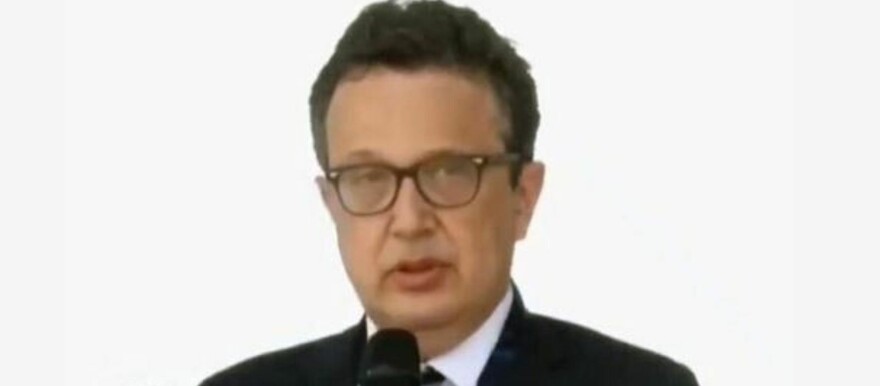The U.S. Ambassador to South Sudan, Michael J. Adler, has urged the transitional government to rapidly take actions that are essential for the conduct of free, fair, credible, and peaceful elections in December 2024.
The U.S. envoy made the remarks while addressing the Political Parties Forum in Juba on Wednesday and reiterated that there is limited time left for South Sudan to set the stage for the polls if they are to be credible.
“It is a matter of urgency that the transitional government proceed to take those actions that are essential for there to be free, fair, credible, and peaceful elections, specifically steps that will create civic and political space and politically neutral security forces, including police,” he said. “Accomplishing this will create an environment in which the South Sudanese people can freely choose their leaders and exercise their rightful voice in determining their country’s future, without fear.”
“With the transitional government almost a year behind in meeting commitments in the peace agreement, it is imperative to spend the time left between now and December 2024 to focus on what is absolutely essential for free, fair, credible, and peaceful elections,” Amb. Adler added.
He said the sense of urgency is consistent with his deep wish that the South Sudanese people have the future of peace and prosperity that they deserve.
The envoy also stated that it is a matter of urgency that the transitional government uses public revenue transparently for public purposes, including support for electoral institutions, as well as salaries for security and civil service personnel, who will have an important role to play in creating an environment conducive to peaceful elections.
“This urgency must inform the approach taken by this forum to the discussion of federalism as well as of all other issues related to the future. We seek to see the South Sudanese people achieve a political system consistent with the foundational values that decades ago launched U.S. engagement in what is today South Sudan. These values include human rights, democracy, freedom of expression, and people’s right to a government that uses public resources to address public needs,” Amb. Adler counseled. “For the future of this country, these principles must be adhered to. They must be adhered to at all levels – the national, state, county, and boma levels.”
According to the U.S. Envoy, decisions about the future constitutional system in South Sudan are for the South Sudanese people to make and should be reached on a consultative basis and should not be imposed unilaterally.
“Whatever else you discuss during this conference, the key questions I would urge you to consider about federalism are as follows: Will it matter? If so, for whom will it matter? Will it serve the interests of all South Sudanese people, not just elites in power? Will it serve the interests of peace?” he questioned. “Federalism can be established through a variety of structures and mechanisms. However, South Sudanese federalism will only matter and serve the interests of peace and all the South Sudanese people if it is used to uphold principles of democracy, human rights, accountability, rule of law, freedom of expression, and good governance.”
Amb. Adler clarified that South Sudanese federalism will not matter or serve the interests of peace and all the South Sudanese people if it is instead merely used to provide an obfuscating veneer of democratic legitimacy.
“The structures and mechanisms of federalism will only function if leaders reject the use of violence as a tool for political competition and resolution of differences and commit to a code of conduct that is based on democracy and the right to peaceful participation in the political process for all,” he stated. “The structures and mechanisms of federalism in South Sudan will not serve the interests of peace and all the South Sudanese people if county commissioners, governors, or other officials at the national and the sub-national level are not answerable to their constituencies and held accountable for violations of human rights, corruption, or poor governance.”
“At present, we are deeply concerned to see national political leaders leaving those from their parties with clear links to gross violations of human rights and corruption in positions of authority at the state and county levels,” he charged.
The Ambassador highlighted that federalism in South Sudan will not serve the interests of peace and the South Sudanese people if county commissioners, governors, or other officials at the national and sub-national levels do not use public revenue for public purposes.




